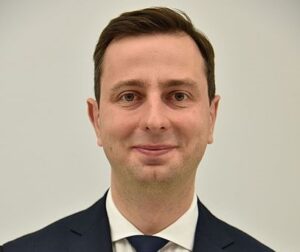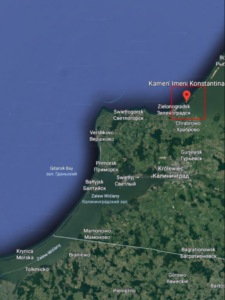Strict verdict for the former minister and extortion payment that will be paid by a private company to the state concern. What do these two things have in common? In both cases Igor Sechin won. But more importantly, Vladimir Putin was the highest judge in both cases. Yes, Sechin is still very strong, even stronger than a few weeks ago. But his position is even more dependent on the Kremlin’s host. The verdict in the case of Ulyukaev and the end of Rosneft’s corporate war with AFK Sistema also allow us to formulate several conclusions regarding the current power system – writes Grzegorz Kuczyński, cooperating with BiznesAlert.pl.
On 15th December the court in Moscow sentenced Alexei Ulyukaev, the former Minister of Economic Development, for taking a bribe of USD 2 million for eight years of strict criminal colony and 130 million roubles of fine. An agreement ending Rosneft’s conflict with AFK Sistema was announced on 22nd December, whereby both parties withdrew all legal claims and Sistema will pay Rosneft 100 billion roubles (USD 1.7 billion) of damages. Where is Putin in all of this? On the eve of the judgement on Ulyukaev, the president, answering a journalist’s question, decided on the guilt of the former minister. Also on the eve of announcement of the end of Rosneft’s war with Sistema, the President personally spoke with the heads of both companies, ordering them to finalize the case.
The untouchable Igor
The court sentenced Ulyukaev virtually without evidence, based on the testimonies of Sechin made during the investigation. However, this main and de facto the only witness of the accusation, did not even appear in court. He ignored several summons, which the judge finally took note of. The entire provocation operation with a bribe was done terribly. And yet, the verdict was favourable to Sechin. This shows the strong position of the Rosneft’s boss – now even stronger. And not only because of the finale of Ulyukaev’s process. After all, the dispute with Ramzan Kadyrov – a faithful vassal of Putin – was settled in favour of Sechin not a long time ago. And the war with Sistema also ended according to the thought of a man often considered number 2 in Russia. On December 22nd an agreement was announced, the day after Putin spoke with Sechin and Yevtushenkov. All claims are withdrawn from both sides, and Sistema agreed to pay Rosneft a compensation of 100 billion roubles (USD 1.7 billion). This amount is over three times less than the total value of Rosneft’s two lawsuits (367 billion roubles) – but Sechin attained his end.
A whip against elites
Shortly after the judgement on Ulyukaev was announced, Alexei Kudrin, the former Finance Minister, wrote on Twitter that the court’s verdict was 'terrible’ and 'unfounded.’ 'This is only the beginning,’ Grigori Jawlinski warned, writing that Ulyukaev’s conviction was an 'act of intimidation’ and comparing the sentence to the assassination of Nemtsov. The difference is, however, that while Nemtsov was killed to intimidate the opposition, putting Ulyukaev behind bars for years is a warning to the elites. More precisely, a certain part of them. The one favouring liberal economy and some market reforms. Thinking that the regime can be changed from within. Putin showed them that the voice now belongs firmly to the siloviki and the advocates of statism. Therefore, Ulyukaev’s conviction cannot be seen in the context of anti-corruption demonstrations designed to satisfy the people. For the first time since Stalinist times, a minister in office was arrested and accused of corruption. The message is clear: nobody is untouchable, even if they belong to the ruling elite and are loyal to Putin. If someone exposes themselves to someone from the Putin’s closest circle of co-workers (collaborators), their fate is determined.
Courts will be courts…
As Sergei Alexashenko, former Deputy Minister of Finance, wrote on Twitter, the verdict is a 'clear warning as to what the rules of the game are’ for all believers in trying to change the system from the inside. The conclusion of the Ulyukaev’s trial is not at all that Russia is not a country of law. This has been known for many years – the current shock and disbelief is mainly due to the fact that the convicted person is a member of the Putin elite, a minister in his government. Something else is more important: it turns out that a mere denunciation is enough for a conviction. Evidence is irrelevant. It is no coincidence that Russian commentators associate it with the case of Nikolai Bucharin and the Stalinist purges. The ambiguous course of the trial – Sechin’s summons and criticism of Sechin’s attitude, or leaks in the media of details from an investigation discrediting Rosneft’s boss – indicates that either Sechin’s enemies were strong enough to hit him in this way, or it was Putin’s decision, which showed Sechin that the president was the sole judge. Ulyukaev was convicted, but Sechin received a signal that he was not the sole decision-maker. The acquittal of the former minister would mean that Sechin should be brought to justice for provocation of a bribe and false denunciation. However, Putin spoke about the trial on 14th December and it was then clear what the next day’s verdict would be. Putin defended Sechin and said clearly that 'evidence was collected in the case.’ This was a signal to the judge. It was also a signal for Yevtushenkov. The head of AFK Sistema could have expected that he would lose further cases with Rosneft and it would end for him in the complete collapse of his business, not just paying Sechin a huge extortion payment.
Privatisation of services
The accused was absolutely right when he claimed to have been the victim of Sechin and FSB conspiracy. But so, what? It was clear from the outset that the people of Lubianka who worked out the minister were acting on commission and in the interest of the Rosneft’s boss. As in many other cases earlier. After all, in 2003, Sechin, then Deputy Head of the Kremlin Administration supervising the services, ordered his friend General Shishin to build a new elite unit as part of his Internal Security Board FSB: 6th Service. Its operations were supervised by Oleg Fieoktistov, Deputy Head of the Internal Security Board. These 'oprichniks’ also called 'the Sechin’s Specnaz,’ have dealt with various governors and senior officials or officers of different institutions. In fact, they failed in summer 2016 and they made Putin angry, but this did not prevent Sechin from using them for one more action: against Ulyukaev. This was coordinated by Feoktistov, although he was no longer in Lubianka but in Rosneft, and the operations were carried out by officers of the „K” Board of Directors (counter-intelligence security for the financial and banking sector) of the FSB Economic Security Service. The head of the board of directors is Ivan Tkachev, a former subordinate of Fieoktistov as head of the 6th Service. This was the last operation of the 'Sechin’s Specnaz,’ Putin took care of staff changes in Lubianka – since Sechin had become too important there. But this is not the end of the use of the FSB for particular purposes by the most important people in the president’s environment. It is worth remembering that the current head of the powerful FSB Economic Security Service, Sergei Koroliew, is a man of the Rotenberg brothers.








